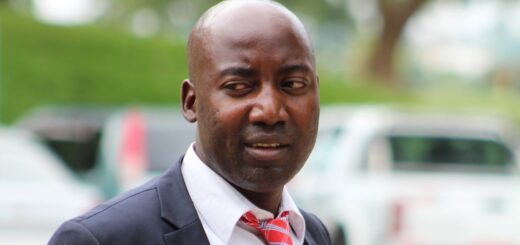2025: A Year of Unprecedented Hardship for Zambian Workers
The National Budget for the financial year 2025, presented by Honourable Dr. Situmbeko Musokotwane, Minister of Finance and National Planning, on 27 September 2024, has signaled nothing short of a difficult year ahead for Zambia’s working class.
Instead of offering relief in a time of economic duress, the government’s refusal to adjust key tax policies—especially Pay as You Earn (PAYE) and the tax exemption threshold—has left workers vulnerable to the full brunt of rising inflation and escalating living costs. This decision seems to reflect a tone-deaf approach to the challenges ordinary Zambians face daily.
Hon. Musokotwane’s budget strategy fails to address the glaring realities of economic hardship, with the Jesuit Centre for Theological Reflection (JCTR) pegging the Basic Needs and Nutrition Basket for a family of five in Lusaka at an alarming K10,669.33 in August 2024.
This figure alone illustrates the financial suffocation faced by families trying to keep their heads above water. The absence of any meaningful adjustments to the tax regime in this context is not only callous but economically short-sighted.
The minister’s justification for maintaining the status quo is that social security programs like the Cash for Work initiative and the Social Cash Transfer scheme will provide a safety net for those without formal employment.
However, this argument overlooks a fundamental truth: while such programs may offer temporary relief to the unemployed, the employed are left out to dry. Zambia’s inflation rate has been rising steadily, eating away at the purchasing power of the average worker.
Essential goods, from food to fuel, have seen astronomical price hikes, which, coupled with stagnant wages, will leave many families struggling to survive.
By choosing not to raise the tax exemption threshold, Dr. Musokotwane effectively condemns workers to further hardship. Already, many Zambians are living on the edge, and with no relief from the government, we are staring at a potential economic disaster.
When the cost of living exceeds earnings, and no policy effort is made to bridge this gap, the likely outcome is a rise in social unrest, with labor unions at the forefront of the battle for fair wages.
Hon. Musokotwane’s budget is not just a financial document; it is a declaration of priorities, and unfortunately, the working class is not one of them. The lack of any substantial relief for workers could set off a wave of discontent that may soon spiral into prolonged labor disputes.
Workers’ unions and trade organizations, already disillusioned by years of stagnating wages, will have no choice but to push aggressively for salary increases to counterbalance the shrinking value of their members’ incomes.
But how far can these demands go? With the IMF bailout looming over the country’s fiscal policies like a shadow, the government’s room for maneuver is limited. Yet, to say that Dr. Musokotwane’s decision to leave PAYE untouched is dictated solely by the IMF is a weak defense.
This decision will likely result in wage negotiations that hit a brick wall, with government representatives claiming, predictably, that there is no money for salary increments beyond a meager 3%. A thinly veiled wage freeze is effectively being imposed, leaving the workers’ bargaining chips greatly diminished.
This is where the real danger lies: demotivated and frustrated workers. Zambia is already grappling with economic instability, and if the workforce—the backbone of any economy—feels abandoned and unappreciated, the repercussions will be severe.
Productivity will decline, dissatisfaction will grow, and industrial unrest will be inevitable. Dr. Musokotwane’s budget, far from cushioning the blow of rising inflation, may just be the spark that ignites widespread strikes and labor protests across the nation.
The 2025 budget seems to lean heavily in favor of populist social welfare initiatives aimed at those without jobs, which, while noble in intent, leaves the working population out in the cold.
It is politically expedient to champion the cause of the unemployed, but this should not be done at the expense of hardworking Zambians who are already contributing to the nation’s revenue base.
Workers, who are taxed every month, are essentially funding the very programs that are designed to help everyone but themselves. This is not just a moral failing; it is a fundamental flaw in the government’s fiscal approach.
It is perplexing that the government seems willing to prioritize non-productive sectors of society while placing the financial burden squarely on the shoulders of those who are employed.
In the long run, this approach is unsustainable and could erode the social contract between the government and its citizens. The working class, already stretched thin, cannot be asked to sacrifice further without sparking resentment.
While Hon. Musokotwane may believe he has crafted a budget that balances the needs of all citizens, the reality is that this budget leans too heavily on idealism at the expense of pragmatism. It may provide temporary relief to the unemployed, but it does nothing to address the systemic issues faced by workers.
The government’s refusal to adjust tax policies is akin to placing a Band-Aid over a gaping wound—it might provide temporary cover, but it will not stop the bleeding.
If 2025 turns out to be the tough year that many predict, Hon. Musokotwane and the New Dawn administration will have no one to blame but themselves. The writing is on the wall. Workers will not sit idly by as their purchasing power diminishes and their wages remain stagnant.
The call for tax reforms, fair wage increases, and better economic planning is not just a request—it is a necessity.
Zambians are resilient, but resilience has its limits. As 2025 approaches, working Zambians must brace for what will likely be one of the most financially challenging years in recent memory.
Hon. Musokotwane has made his priorities clear, and unfortunately, they do not include the working class. Without meaningful intervention, the financial strain on households will deepen, social tensions will rise, and Zambia’s fragile economy may find itself teetering on the brink of collapse.
It is time for the government to rethink its approach. Workers should not be sacrificed on the altar of political correctness. A fair and balanced fiscal policy, one that takes into account the needs of all citizens, is the only way forward. Otherwise, 2025 will be remembered as the year the government failed its workers.








